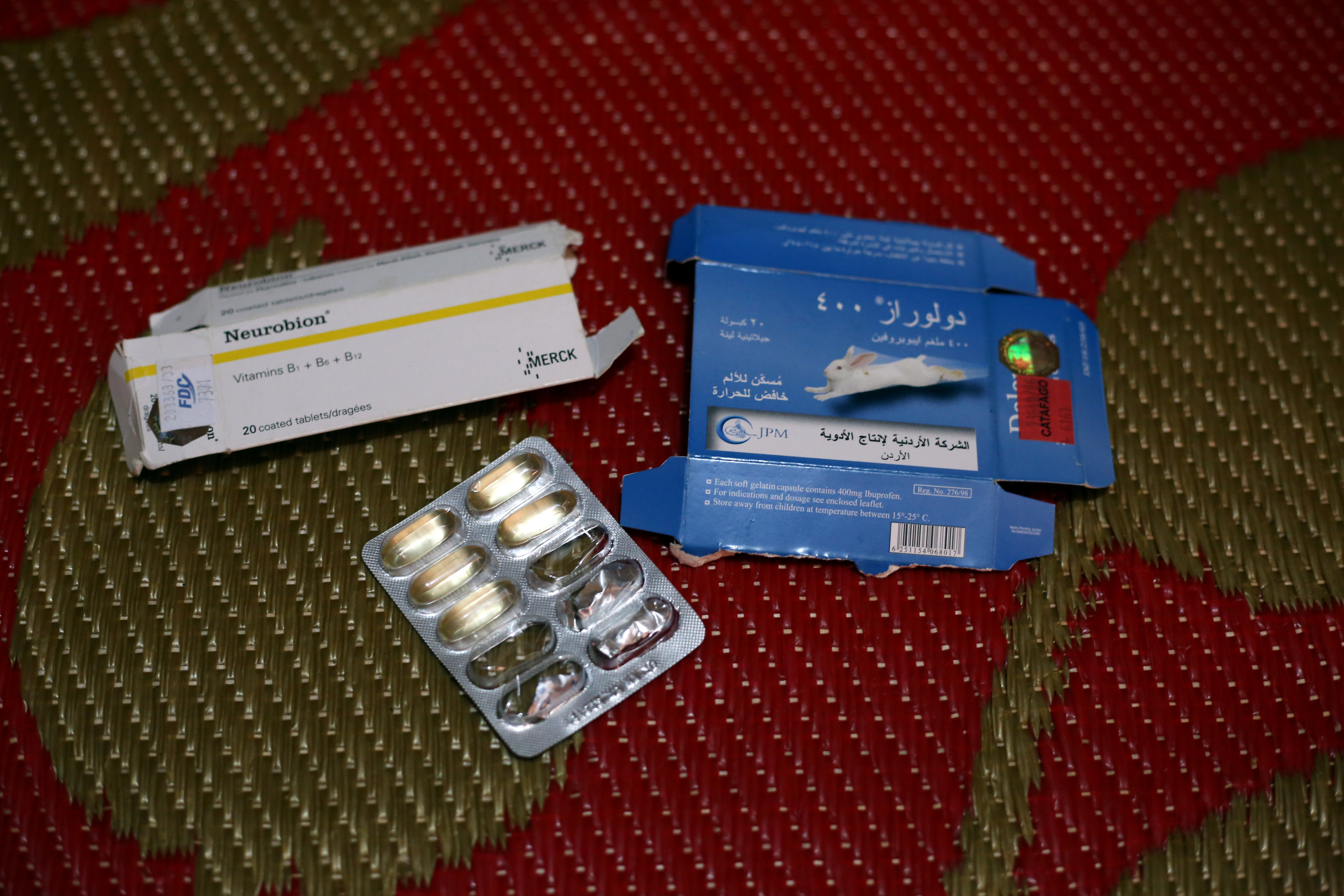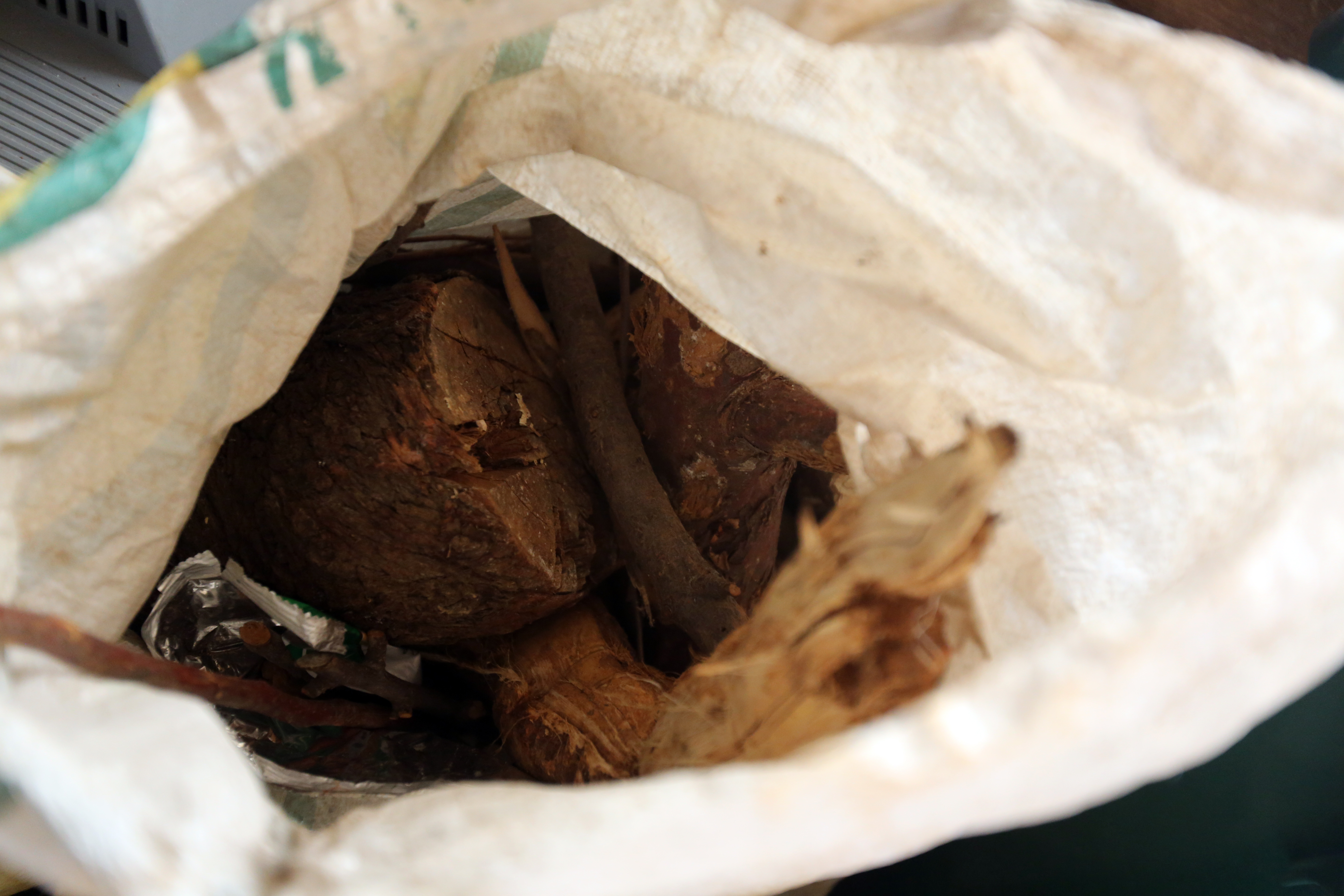'I no longer need to beg from everyone anymore.'
Five years ago when the Syria war broke out, Walid and his wife, Tawasif, lost everything. Their house was hit by a bomb and they were petrified that the army would take them away. Forced to leave Homs, they came to Anjar in central Lebanon with a mere USD 13 (3000 Syrian pounds) to their name.
“It’s been five years since we left our relatives and parents. You just get used to it. I used to work as a carpenter, earning about USD 16 (25,000 LBP) per day. Life was getting easier until two years ago when a huge [piece of] cement fell on me and I was forced to spend the subsequent six months in the hospital,” explains Walid.
Life hasn’t been the same since. At the time of the accident, his daughter, Fatima, had just turned one. Bills piled up and Walid got impatient. “When I was released from the hospital, I tried working for three days but simply couldn’t. We ended up selling our food card to get money for the doctors,” says Walid. “We relied on our neighbours and relatives to give us additional cash. My wife started working as a cleaner. She earned an average of USD 7 per day but it wasn’t stable work.”
Walid tries to hold back his tears. “I felt as if I was begging from everyone just to get the basic needs,” he says.
Between November 2015 to February 2016, World Vision gave the family USD 147 per month of cash assistance from the Swedish Pentecostal Churches (PMU) via RadioAid. “When the money came through, finally, I felt I was ‘buying’ my issues with my own money as opposed to asking for money. That made me so happy I was very proud of myself,” says Walid. “The first thing I bought was wood - all fifteen bags of wood instead of fuel because it was cheaper, only USD 43 (65,000 LPB). The best part was that we were able to use the heating stove twice a day and I felt warm.”
The cash assistance was given to the most economically vulnerable Syrian refugee households in hopes to help them meet their basic needs to survive winter.
Prior to the USD 147, the family was never able to stay warm during winter. Instead, they were forced to ask the neighbours for assistance. Freezing temperatures coupled with severe snowstorms made Anjar an impossible place to live this past winter.
In addition to the wood Walid bought with the PMU cash, he also bought a medical device for his mom to help monitor her blood and sugar levels, as well as food for the family. “With the extra cash, I was able to provide meat once a week - either chicken or beef,” adds Walid. “Before, we were never able to afford it. If I was never given the cash, I would have had to beg on the street or ask the neighbours. Getting this cash has made a huge difference - I’m now relying on myself, not my neighbours.”
Although the grant has now ended, the family remains hopeful.
“Now we are good. The cash came at the perfect time for winter,” says Walid. In previous years, when I asked my neighbours for money, often they would ask: ‘why weren’t you working? You’re walking with your legs.’ When I told them that I was sick, they would simply say: ‘you are walking, how could you not work?’ I had nothing to say. I felt sad,” he remembers.
For 280 Syrian households like Walid’s family, the cash provided by the Swedish Pentecostal Churches (PMU) via RadioAid has given them a new sense of freedom, identity and more importantly, a space to breathe and be able to properly support the family.

